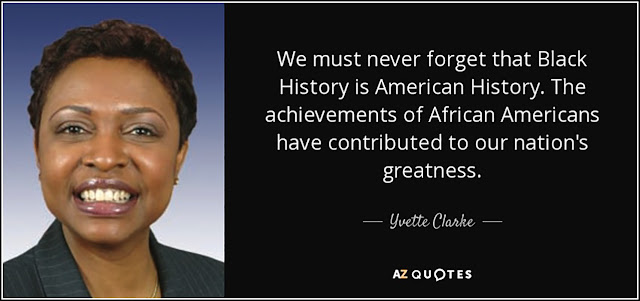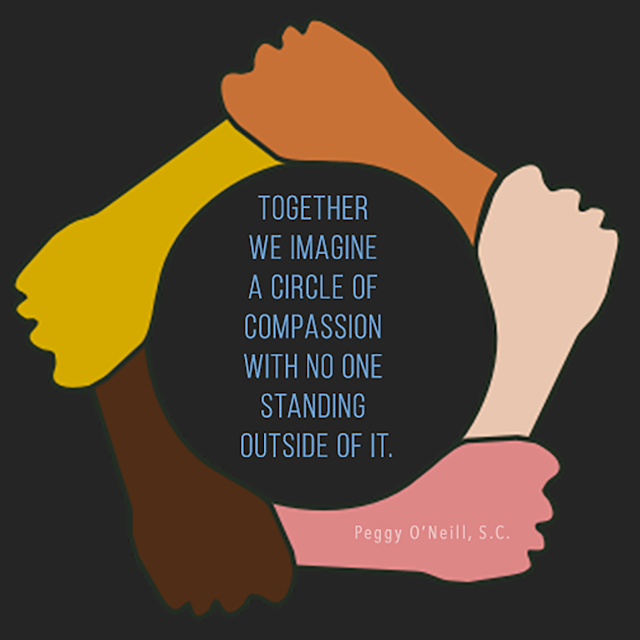At the coldest, bleakest time of each year in the United States, we observe first Martin Luther King, Jr. Day in late January, and then Black History Month in February.
I know there are non-racist reasons for this scheduling. Dr. King’s birthday is January 15. February was chosen by a Black historian for Black History Month (originally Black History Week) because Abraham Lincoln and Frederick Douglass both were born in February (Feb. 12 and 14, respectively).
But I sometimes feel as if this is a way white people accepted so they could seem “enlightened,” get them over with early, and then move on. Like maybe they won’t have to think about Black people the rest of the year.
 |
| (AZ Quotes) |
Thinking about Black people all year
In recent years I’ve observed Black History Month annually on Artdog Adventures. But we cannot relegate any aspect of our history and national culture to a shadowed corner for ten and a half months of the year.
It’s impossible to live an honest life in today’s world without acknowledging Black people’s pervasive contributions to all aspects of our society, and the incredible depth of their talent pool. Simply put, Black people make our country a better place to live.
 |
| (AZ Quotes) |
Like other meaningful annual observations, Black History Month should be a time of renewing our understanding and deepening our knowledge. The only way to truly grow in our antiracist understanding is to go back to the well of clear-eyed understanding with open-hearted empathy.
Black History Month at a unique moment in US history
If 2020 taught us anything, it should have taught us that way too many of us white folks are clueless and insensitive at best, can often be racist jerks, and may even be violent white supremacists at worst. It should have taught us to respect the massive contributions to our lives by our communities of color.
These groups disproportionately provided the essential workers who’ve kept the rest of us alive—at great personal cost. They came out to vote in huge numbers, overcoming sometimes-daunting obstacles, and literally saved our democracy (if we can keep it). In many ways, white Americans cannot easily fathom how very much gratitude we owe them.
 |
| (Jan S. Gephardt) |
Of course, a lot of us white people are really slow learners, so the inequities persist. A living wage continues to elude many who are still employed. Medical professionals who should know better continue to cherish magical thinking about Black pain tolerance or ignore what their Black patients say. Systemically racist police practices continue to oppress and overpolice and kill.
No turning back now
Some powerful (and a lot of ordinary) white people still act and talk as if we could go back to “the way it used to be” after the pandemic has passed. Now that we have a new administration, they say, we should let bygones be bygones, in the name of “unity.”
News flash: time marches on, just as inexorably as the Black Lives Matter demonstrators did last summer. Change has occurred. We’ve seen too much, lost too many family members, and sacrificed too much to subside into numb complacency now.
Not if we retain the smallest scintilla of survival instinct.
 |
| (Ignatian Solidarity Network) |
If we didn’t realize it before, we no longer have any excuses. Everyone now knows how very many things can, and have, and do go wrong. When incompetent people collude with greedy people from a position of abused power, disasters ensue.
It’s going to take all of us, with all of our pooled talent, strength, and resiliency, to pull our country out of the fire. Let’s harness the understandings we gain during Black History Month, together with the spirit of genuine antiracism. Then let’s go forward to create a better future for all of us.
IMAGE CREDITS
Many thanks to AZ Quotes: first for the Chris Rock quote, and second for the quote from US Rep. Yvette Clarke. I assembled the quote from author Ijeoma Oluo with some help from 123rf. And I appreciate the Ignatian Solidarity Network for the quote from Sister Peggy O’Neill, SC.
No comments:
Post a Comment